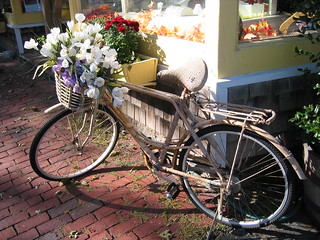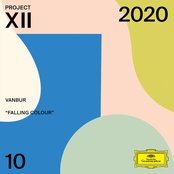 As evidenced by the proliferation of Plone add-ons such as ATGoogleVideo, ATFlashMovie and the recent release of SevenVideo, there is obviously a demand for tools that make it easier to publish videos to a Plone site.
As evidenced by the proliferation of Plone add-ons such as ATGoogleVideo, ATFlashMovie and the recent release of SevenVideo, there is obviously a demand for tools that make it easier to publish videos to a Plone site.
While each of these products is useful in that they make it easy to add a video hosted on Google Video (ATGoogleVideo), a Flash SWF file (ATFlashMovie) or a Youtube/Metacafe (SevenVideo), there are several disadvantages to these products.
Not extensible
With the exception of SevenVideo, each product only supports a single video site/format. What if you start out wanting to add Google Videos to your Plone site, and then later decide you want to add support for YouTube videos? Well, you probably aren’t going to want to extend ATGoogleVideo, because it wasn’t designed for that. So you’ll have to install SevenVideo. Then later you want to add support for another video sharing site. Well, you’ll have to then install another product. And so on…
Update: Matthew Latterell left a comment to inform me that ATGoogleVideo does in fact support Youtube as well. My apologies for not getting my facts straight.
Burden of maintaining multiple products
For each new product that you install in your Plone site, that’s another product that you have to maintain and upgrade when new versions are released. So if you want to support all of those video types, you have to install all those video products, right? Wrong! Read on to learn about a product that has support for all these video sites and file formats out-of-the-box and is also extensible so you can add other sites/formats.
Content type pollution
You can never have enough content types available for users to add to the Plone site, right? Wrong! For each new product that you install in your Plone site, you introduce new content types. Each new product introduces additional items which appear in the Add new item menu.
From a usability standpoint, this is a disadvantage because your users now have to think before they are going to add a video. “Now which type of video am I adding? Is it a Flash, Google, Youtube or Metacafe video?” and scratch their heads as they look through the list of items to find the appropriate content type.
Wouldn’t it be easier if they could just add a normal Link if they want to add a video hosted elsewhere, and a File if they want to upload a video file? This makes logical sense if you are just a normal non-technical user of the CMS.
Now wouldn’t it be even more convenient if when you added that Link or File, Plone was smart enough to detect where the link was from, or what kind of file you are uploading, and automagically extract the relevant metadata and choose an appropriate video player?
A video publishing tool for the rest of us
This is what the Plone4ArtistsVideo product provides, an intuitive interface for adding videos to your Plone site whether they are hosted on one of a dozen popular video sharing sites, or a Quicktime, Windows Media or Flash video file on your computer. And it introduces no new content types!
As part of the development of Plone.tv, we added the ability to extract the metadata from videos hosted on Google Video, Youtube, Blip.tv and Revver.com. This means that when you paste in a video link from one of these sites into your Plone site, Plone4ArtistsVideo will grab the title, description, thumbnail, tags and author, so you don’t have to type all that data in again.
We’ve also added the capability of rating and tagging in addition to commenting on the videos. Note: you must have the contentrating and tagging products installed in order for these features to be enabled.
Try it out!
You can download the latest version of Plone4ArtistsVideo 1.0 which is compatible with Plone 2.5, and we are working on Plone4ArtistsVideo 1.1 which will bring Plone 3.0 compatibility. Help us to get the 1.1 release out faster by pledging a financial contribution. We are developing this open source software on a volunteer basis, so we appreciate any amount of money that you can contribute. Thanks!
Jonathan Lewis is also making a screencast about Plone4ArtistsVideo which will complement the two that he has already done about Plone4ArtistsAudio and Plone4ArtistsCalendar.
In the meantime, you can take Plone4ArtistsVideo for a test drive on the demo site. Please try it out and give us feedback on what you like and what you don’t like!



 How did I miss the
How did I miss the 
 RSS - Posts
RSS - Posts
























Recent Comments